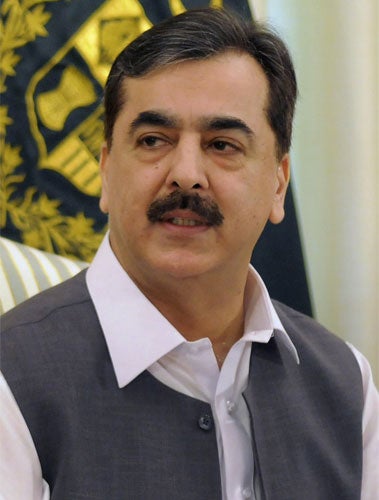Pakistan PM sacks defence secretary

Pakistan's prime minister has sacked the defence secretary, his office said today, in a move likely to ratchet up tension with the powerful military and raise fears of instability in a country vital to efforts to bring peace to Afghanistan.
The decision comes during intense friction between the civilian government and the army over an unsigned memo that sought US help in reining in Pakistan's generals, a scandal dubbed as "memogate" that has reached the Supreme Court.
Prime Minister Yusuf Raza Gilani's office said in a statement retired Lieutenant General Naeem Khalid Lodhi, the top defence bureaucrat, was fired for "gross misconduct and illegal action which created misunderstanding" between institutions.
Distrust between civilian leaders and the generals has bedeviled the nuclear-armed South Asian country for almost all of its existence, with the military ruling for more than half of its 64-year history after a series of coups.
A senior military official told Reuters the latest tension was "very serious".
Lodhi was replaced by cabinet secretary Nargis Sethi, who is considered close to Gilani.
If Gilani decides to dismiss the army or intelligence chiefs - arguably the two most powerful men in the country - he needs the defence secretary on his side.
Historically, military chiefs recommend appointments to the civilian defence secretary post and often choose allies, usually retired generals.
"Because this one (Lodhi) is the army's guy, they may consider this an insult," said Hasan Askari Rizvi, an independent political analyst.
In December, President Asif Ali Zardari flew to Dubai for medical treatment, sparking rumours that he had fled the country anticipating a coup.
The military, which sets foreign and security policies, drew rare public criticism after US special forces killed Osama bin Laden on Pakistani soil in a unilateral raid in May last year, a raid seen as a flagrant violation of sovereignty.
But Pakistanis rallied behind it after a November 26 Nato cross-border air attack killed 24 Pakistani soldiers, plunging already troubled ties with Washington to their lowest point in years.
By going on the offensive, civilian leaders risk inviting the wrath of the military.
"This is political adventurism on the part of the government," said Mutahir Ahmed, professor of international relations at the University of Karachi.
"Instead of stabilising and strengthening the democratic forces, the present government is following the policy of confrontation," he said.
A senior member of the ruling Pakistan People's Party (PPP) said the government and the army were both digging in.
"The prime minister has started throwing down the gauntlet," the party member said.
The United States, the source of billions of dollars of aid, wants Pakistan's civilian leaders and generals to maintain smooth ties so they can focus on helping Washington wind down the war in neighbouring Afghanistan.
Reuters
Join our commenting forum
Join thought-provoking conversations, follow other Independent readers and see their replies
Comments
Bookmark popover
Removed from bookmarks